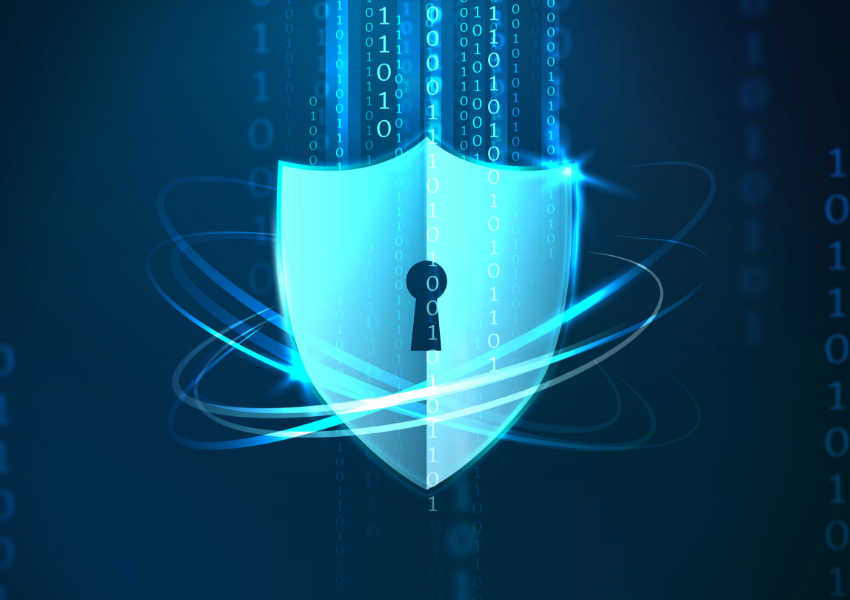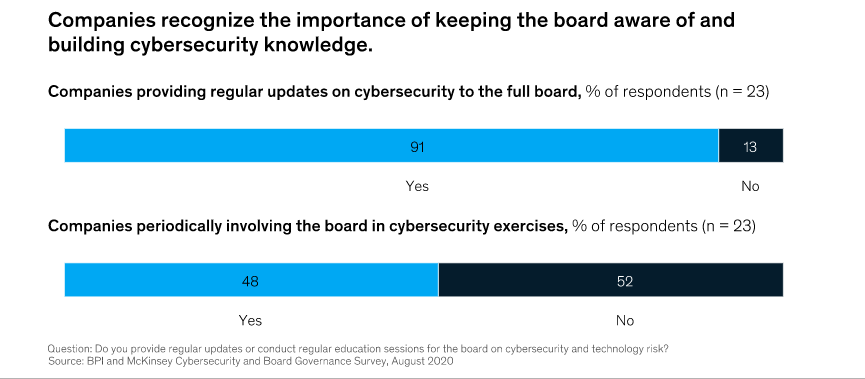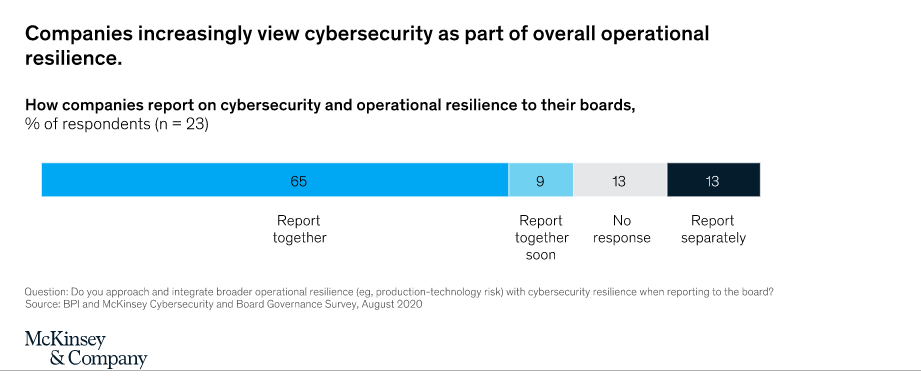Why Modern Cybersecurity Technologies and Practices are A Strategic Advantage For Your SaaS Company

Imagine waking up one day to find out that your company’s sensitive data has been compromised in a massive cyber attack. Not only does this put your business at risk of financial losses, but it also damages your company’s reputation and erodes the trust your customers have in your ability to keep their data safe. Unfortunately, this nightmare scenario is all too real for many SaaS companies that neglect to prioritize cybersecurity.
In fact, in a recent study by IBM, the average cost of a data breach for a company was $3.86 million, and the average time to identify and contain a breach was 280 days. This not only leads to financial losses but can also damage the company’s reputation. In a survey conducted by ITPro Today, 49% of respondents said that a data breach would cause them to lose trust in a company, and 46% said they would stop doing business with that company altogether.
However, the good news is that modern cybersecurity technologies and practices can provide a strategic advantage for SaaS companies. By investing in advanced security measures, these companies can protect themselves from cyber threats and gain a competitive edge in the marketplace. For instance, machine learning and artificial intelligence can be used to identify and prevent cyber threats before they occur. Meanwhile, employee training and education can promote a culture of security awareness, ensuring that everyone in the company understands their role in protecting sensitive data.
By prioritizing cybersecurity and adopting modern technologies and practices, SaaS companies can not only mitigate the risks of cyber attacks but also differentiate themselves in a crowded marketplace and build lasting relationships with their customers. As Alex Stamos, former Chief Security Officer at Facebook, once said, “Security is a strategic advantage.” So, if you want to turn cybersecurity into a strategic advantage for your SaaS company, stay tuned for our in-depth exploration of this important topic.

Image source:- McKinsey
Constructing a Stronghold
Modern cybersecurity technologies and best practices provide SaaS companies with a strong line of defense against cyber threats, ensuring the safety and security of sensitive customer data. By investing in the latest security measures, SaaS companies can build a fortress against potential attacks, reducing the risk of data breaches, financial loss, and reputational damage.
Live Success Example: In 2020, Zoom, a popular video conferencing SaaS company, faced security concerns and public scrutiny due to privacy and security issues. In response, the company swiftly implemented modern cybersecurity technologies and practices to address the vulnerabilities and restore customer trust. This included end-to-end encryption, two-factor authentication, and regular security audits to ensure data protection and privacy.
Building Customer Trust
Parker Harris, the co-founder of Salesforce, emphasized the company’s commitment to cybersecurity, stating, “Trust is our number one value at Salesforce…We understand that trust is earned, and we work hard to earn it every day.”
Cybersecurity is not just about protecting data, it’s also about building trust with customers. SaaS companies that prioritize cybersecurity demonstrate responsibility, transparency, and reliability, which can increase customer loyalty and strengthen their reputation. Customers are more likely to trust companies that take cybersecurity seriously and prioritize data protection.
Live Success Example: In 2019, Capital One, a financial services SaaS company, experienced a data breach that compromised the personal information of over 100 million customers. Despite the breach, Capital One’s swift response, transparency, and commitment to cybersecurity helped the company maintain customer trust and loyalty.
Safeguarding Most Valuable Asset
Did you know that modern cybersecurity technologies are essential for protecting the intellectual property of SaaS companies? Proprietary software, algorithms, and trade secrets are the key components of a SaaS company’s competitive advantage, making them vulnerable to cybercriminals. But by implementing cybersecurity measures such as:-
- Encryption
- Access controls
- Firewalls
- Intrusion detection/prevention systems
- Multi-factor authentication
- Regular security assessments
SaaS companies can safeguard their intellectual property from unauthorized access, theft, or tampering. This not only protects the company’s valuable assets but also boosts customer confidence in the security of their data, making it a crucial selling point in the highly competitive SaaS industry.
Meeting Compliance Requirements
Meeting compliance requirements is a crucial aspect of modern cybersecurity for SaaS companies, as it helps to ensure that they are adhering to legal and regulatory standards in their industry. Some of the key regulations that SaaS companies need to comply with include:
- General Data Protection Regulation (GDPR)
- California Consumer Privacy Act (CCPA)
- Payment Card Industry Data Security Standard (PCI DSS)
- Health Insurance Portability and Accountability Act (HIPAA)
Adhering to these regulations not only helps to avoid legal and financial penalties, but it also demonstrates to customers that the company takes data privacy and security seriously. This can lead to increased trust and a competitive advantage in the marketplace. Modern cybersecurity practices such as data encryption, access control, and regular security audits can help SaaS companies meet compliance requirements and protect sensitive data.
Strengthening Business Resilience
According to a report by McKinsey, the growing awareness of cybersecurity risks among boards is reflected in the strengthening of business resilience. Despite this, many companies still struggle with reporting these risks to their boards. The report highlights the importance of modern cybersecurity technologies and practices as a strategic advantage for strengthening business resilience in the face of cyber threats.

Image source:- McKinsey
By implementing modern cybersecurity technologies and practices, such as intrusion detection and prevention systems, security information and event management (SIEM) solutions, and incident response plans, SaaS companies can quickly detect and respond to threats, reducing the risk of downtime and data loss.
Streamlining Security Operations
With the rise of modern cybersecurity technologies, SaaS companies are experiencing a cybersecurity revolution. Instead of relying solely on human-powered security operations, companies are now turning to automation and machine learning to streamline their security processes, saving precious time and resources.
According to the Ponemon Institute, companies that use automated security technologies can save an average of $2.4 million in labor costs per year. Moreover, automation tools can reduce incident response times by up to 90%, according to a report by Forrester Research.
Enhancing Employee Productivity
Security technologies are no longer just about protecting SaaS companies from cyber threats. They also offer a strategic advantage by enhancing employee productivity. By embracing these technologies, companies can provide secure access to their network and data, enabling remote work and improving collaboration among team members.
In a survey conducted by Citrix, 74% of remote workers reported higher productivity levels. With modern cybersecurity technologies, SaaS companies can provide secure remote access to employees, allowing them to work from anywhere, anytime. This reduces the need for physical office space, resulting in cost savings and increased flexibility for both employees and employers.
Moreover, secure access to company data and systems enables employees to collaborate more effectively, share files and documents securely, and work in real-time. This streamlined collaboration can lead to faster decision-making, increased innovation, and ultimately, improved productivity.
Differentiating from Competitors
It can be challenging for SaaS companies to differentiate themselves from their competitors. However, prioritizing security can help companies stand out by demonstrating their commitment to protecting customer data.
By implementing best practices, SaaS companies can build trust with their customers and provide a unique selling point. Customers are more likely to choose a company that takes data protection seriously, especially in industries where data privacy is a top concern.
Moreover, it can be a competitive advantage in contract negotiations with potential clients. Clients are becoming increasingly aware of the importance of data security, and they want to know that their data is protected by the vendors they work with. Companies that prioritize cybersecurity can offer this assurance and stand out from competitors who do not.
Mitigating Brand Damage
A cybersecurity breach can cause significant brand damage, leading to lost customers, revenue, and reputation. Implementing modern cybersecurity technologies and practices can prevent breaches, mitigating the risk of brand damage and negative publicity.
A live example of a SaaS software company that has successfully mitigated brand damage through cybersecurity measures is Zoom. In early 2020, Zoom experienced a surge in popularity due to the COVID-19 pandemic, but also faced scrutiny over its security practices and several high-profile security incidents. The company quickly took action to address the issues, implementing various security measures, such as end-to-end encryption and two-factor authentication, and undergoing third-party security audits.
As a result, Zoom was able to prevent any major security breaches and maintain the trust of its customers. The company’s revenue grew significantly, and its stock price increased by over 500% in 2020. By investing in modern cybersecurity technologies and practices, Zoom was able to mitigate the risk of brand damage and maintain its position as a leader in the video conferencing market.
Conclusion
As the threat of cyber attacks continues to rise, SaaS companies need to prioritize modern cybersecurity technologies and practices to stay ahead of the game. Not only can this help protect their products and users from potential data breaches, but it can also give them a significant edge in the marketplace by building trust with customers and demonstrating a commitment to security.
FAQs
What are the most common cybersecurity risks that SaaS providers face?
Unauthorized access, malware, phishing, DDoS attacks, insider threats, and third-party risks are all dangers to SaaS organizations. These dangers can result in data theft, system compromise, financial losses, and reputational harm. To combat these risks, SaaS organizations must adopt effective cybersecurity security measures and continuously monitor their systems and networks for suspicious activities.
What are the potential consequences of a data breach for a SaaS provider?
A data breach can have serious consequences for a SaaS provider, including loss of customer trust, legal fines, reputational damage, and compromised sensitive data such as financial information, login credentials, and intellectual property, which can lead to identity theft, financial fraud, and other cyber crimes.
How can SaaS organizations balance security and user experience when implementing security measures?
SaaS organizations can balance security and user experience by taking a user centric approach considering the impact of security measures on usability during the design and development process. SaaS provides can implement security measures such as two-factor authentication, encryption, frequent security assessments, and user education.
Want Your Product's
Security Evaluated?
- Proven
- Transparent
- Dependable

